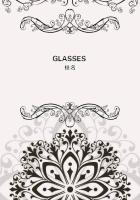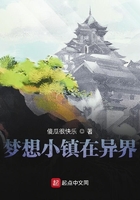The baroness took the doctor a-shopping; she must buy Rose a gray silk.In doing this she saw many other tempting things.I say no more.
But the young ladies went up to Beaurepaire in the other carriage, for Josephine wished to avoid the gaze of the town, and get home and be quiet.The driver went very fast.He had drunk the bride's health at the mayor's, item the bridegroom's, the bridesmaid's, the mayor's, etc., and "a spur in the head is worth two in the heel,"says the proverb.The sisters leaned back on the soft cushions, and enjoyed the smooth and rapid motion once so familiar to them, so rare of late.
Then Rose took her sister gently to task for having offered to go to Egypt.She had forgotten her poor sister.
"No, love," replied Josephine, "did you not see I dared not look towards you? I love you better than all the world; but this was my duty.I was his wife: I had no longer a feeble inclination and a feeble disinclination to decide between, but right on one side, wrong on the other.""Oh! I know where your ladyship's strength lies: my force is--in--my inclinations.""Yes, Rose," continued Josephine thoughtfully, "duty is a great comfort: it is so tangible; it is something to lay hold of for life or death; a strong tower for the weak but well disposed."Rose assented, and they were silent a minute; and when she spoke again it was to own she loved a carriage."How fast we glide! Now lean back with me, and take my hand, and as we glide shut your eyes and think: whisper me all your feelings, every one of them.""Well, then," said Josephine, half closing her eyes, "in the first place I feel a great calm, a heavenly calm.My fate is decided.No more suspense.My duties are clear.I have a husband I am proud of.There is no perfidy with him, no deceit, no disingenuousness, no shade.He is a human sun.He will make me a better, truer woman, and I him a happier man.Yes, is it not nice to think that great and strong as he is I can teach him a happiness he knows not as yet?" And she smiled with the sense of her delicate power, but said no more; for she was not the one to talk much about herself.
But Rose pressed her."Yes, go on, dear," she said, "I seem to see your pretty little thoughts rising out of your heart like a bubbling fountain: go on."Thus encouraged, Josephine thought on aloud, "And then, gratitude!"said she."I have heard it said, or read it somewhere, that gratitude is a burden: I cannot understand that sentiment; why, to me gratitude is a delight, gratitude is a passion.It is the warmest of all the tender feelings I have for dear Monsieur Raynal.
I feel it glow here, in my bosom.I think I shall love him as Iought long before he comes back."
"BEFORE?"
"Yes," murmured Josephine, her eyes still half closed."His virtues will always be present to me.His little faults of manner will not be in sight.Good Raynal! The image of those great qualities Irevere so, perhaps because I fail in them myself, will be before my mind; and ere he comes home I shall love him dearly.I'll tell you one reason why I wished to go home at once was--no--you must guess.""Guess?" said Rose, contemptuously."As if I did not see it was to put on your gray silk."Josephine smiled assent, and said almost with fervor, "Good Raynal!
I feel prouder of his honest name than of our noble one.And I am so calm, dear, thanks to you, so tranquil; so pleased that my mother's mind is at rest, so convinced all is for the best, so contented with my own lot; so hap--py."A gentle tear stole from beneath her long lashes.Rose looked at her wistfully: then laid her cheek to hers.They leaned back hand in hand, placid and silent.
The carriage glided fast.Beaurepaire was almost in sight.
Suddenly Josephine's hand tightened on Rose's, and she sat up in the carriage like a person awakened from a strange dream.
"What is it?" asked Rose.
"Some one in uniform."
"Oh, is that all? Ah! you thought it was a message from Raynal.""Oh! no! on foot--walking very slowly.Coming this way, too.
Coming this way!" and she became singularly restless, and looked round in the carriage.It was one of those old chariots with no side windows, but a peep hole at the back.This aperture, however, had a flap over it.Josephine undid the flap with nimble though agitated fingers; and saw--nothing.The road had taken a turn.
"Oh," said Rose, carelessly, "for that matter the roads are full of soldiers just now.""Ay, but not of officers on foot."
Rose gave her such a look, and for the first time this many a day spoke sternly to her, and asked her what on earth she had to do with uniforms or officers except one, the noblest in the world, her husband.
A month ago that word was almost indifferent to Josephine, or rather she uttered it with a sort of mild complacency.Now she started at it, and it struck chill upon her.She did not reply, however, and the carriage rolled on.
"He seemed to be dragging himself along." This was the first word Josephine had spoken for some time."Oh, did he?" replied Rose carelessly; "well, let him.Here we are, at home.""I am glad of it," said Josephine, "very glad."On reaching Beaurepaire she wanted to go up-stairs at once and put on her gray gown.But the day was so delightful that Rose begged her to stroll in the Pleasaunce for half an hour and watch for their mother's return.She consented in an absent way, and presently began to walk very fast, unconscious of her companion.Rose laid a hand upon her playfully to moderate her, and found her skin burning.
"Why, what is the matter?" said she, anxiously.
"Nothing, nothing," was the sharp reply.
"There's a fretful tone; and how excited you look, and feel too.
Well, I thought you were unnaturally calm after such an event.""I only saw his back," said Josephine."Did not you see him?""See who? Oh, that tiresome officer.Why, how much more are we to hear about him? I don't believe there WAS one."At this moment a cocked hat came in sight, bobbing up and down above the palings that divided the park from the road.Josephine pointed to it without a word.














